What Is Pre IPO Investment and Role of IPO Advisors
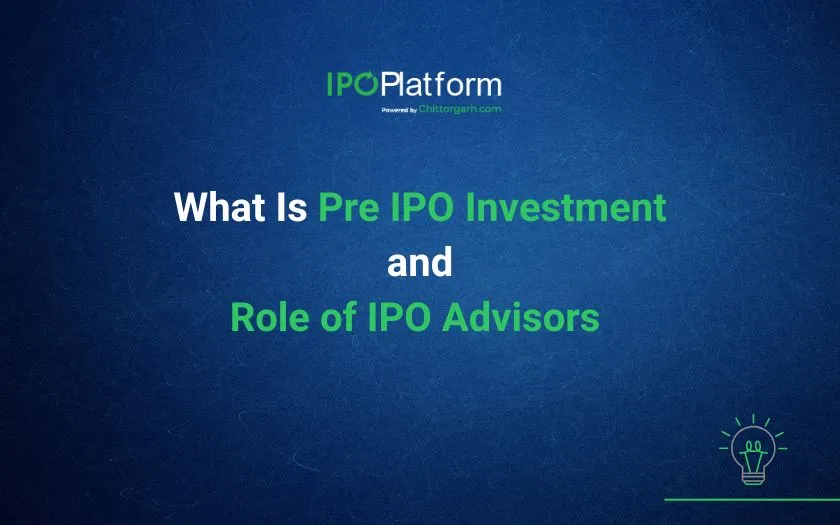
What is the meaning of the term Pre-IPO Investment?
The term Pre-IPO investments refer to strategic investments made by investors right before a company's Initial Public offering (IPO). Pre IPO refers to purchase of shares of a company before it goes public. A company which is not listed but invites investors to invest in the company to diversify its operations is a Pre-IPO company. A Pre-IPO company raises funds to flourish its business and thereafter eventually files DRHP for IPO.
What are Pre-IPO shares?
Pre IPO shares are equity shares that can be bought before IPO of a company. These shares are sold generally in a private fund raise round and available to institutional investors, HNI (high net worth individuals) or venture capitalists. The shares usually come at a lower price than the price offered in IPO.
How is Pre-IPO different from an IPO?
Difference between Pre IPO and IPO:
- Pre-IPO: Investors buy shares before the company goes public. It facilitates early entry into a growing company at a lower cost and investors might have higher returns. However, Pre- ipo investments come also have certain set of risks.
- IPO: Shares are offered to the general public when the company launches its IPO. An initial public offer has to comply with SEBI (ICDR) Regulations and is more liquid as compared to Pre-IPO.
What are the factors to be considered for issuing Pre-IPO shares?
- Compare with Industry Peers: Look at publicly traded companies in the same sector to gauge whether the Pre-IPO valuation is reasonable.
- Consider Financial Metrics: Evaluate the company’s price-to-earnings (P/E) ratio, revenue multiples, and other financial metrics.
- Growth Potential: Factor in the company’s projected growth, innovation, and market position.
What are the benefits of Pre-IPO?
- Potential High Returns: Investors who buy shares in a growing company before an IPO may see significant gains if the company performs well post-listing.
- Access to high growth companies: Investing in a company early provides an opportunity to benefit from its growth before the public market reflect its value.
- Diversification and portfolio expansion- Including Pre ipo shares in the investment portfolio enhances diversification and increases the potential for growth. This asset class has a distinct risk reward profile.
- Confirmed Allotment- Investors in Pre ipo shares get confirmed allotment of the companies for which they are confident about their growth. There is no risk of oversubscription.
- Credibility- When HNIs and institutional investors invest in the Pre ipo round of a company, it increases the credibility of the company in the market and attracts more investors.
- Paves the way for IPO- The Pre ipo company benefits by the initial fund raise in its business which ultimately takes its closer to its milestone of being Public. The company can either choose to list on NSE Emerge, BSE SME or go for mainboard IPO. The services offered by IPO advisors ranges from Pre ipo advisory to listing of the company on the exchange. Various platforms have Pre ipo information on their portal.
Which company is eligible for Pre-IPO?
Pre-IPO Companies are private firms who intend to go public by listing on NSE or BSE. Before IPO, some companies raise funds to fuel their growth. Pre IPO investment also involves due diligence activities
Check Your Eligibility For SME IPO
Difference between Pre-IPO round and private equity
The terms Pre-IPO round and Private Equity both refer to stages of private investment in companies, but they occur at different phases of a company’s lifecycle and serve distinct purposes.
A. Pre-IPO Round
Timing: This refers to the round of funding that occurs just before a company goes public (i.e., before an Initial Public Offering - IPO). It’s typically one of the last stages of private funding.
Purpose: The Pre-IPO round helps a company raise capital needed to strengthen its balance sheet and funds growth initiatives in anticipation of the IPO.
Investors: Investors who invest in Pre IPO companies are often institutional investors, hedge funds, or high-net-worth individuals who seek to invest at a lower price with confirmed allotments before the company’s shares are publicly traded. They tend to aim for higher returns when it goes public.
Risk and Return: While the risk is lower compared to earlier stages of funding (since the company is usually close to going public and well-established), there’s still a risk if the IPO doesn’t happen as planned or market conditions deteriorate.
B. Private Equity (PE)
Timing: Private equity is a broader category of investment that have no direct relation with the IPO of the company.
Purpose: Private equity serves different goal for different companies like, growth, expansion etc.
Investors: Investors in private equity are usually specialized firms (private equity firms), institutional investors (like pension funds), or wealthy individuals. PE investors tend to hold on to their investments for several years before selling.
Risk and Return: PE investments are generally considered riskier than public investments because the firms involved may need significant restructuring. However, the potential returns are high if the investment strategy succeeds. PE investors aim for higher returns over longer time horizons (often 5–10 years).
What are the risks involved in the Pre-IPO investment?
Illiquidity: The liquidity of Pre IPO shares may be one of the risk as they are unlisted and cannot be easily sold.
Valuation Risk: Since the Pre Ipo valuation comes at a discount to IPO, there may be a valuation risk.
IPO Uncertainty: The company may delay its IPO due to any reason.
What is the Lock-in requirements in Pre- IPO shares?
The Pre IPO shares until they are not listed can be sold anytime on buyer availability at current valuations and price. However, there is a lock in requirement of 1 year from the date of listing of Pre ipo shares. - how does mainboard and SME differ in Pre ipo.
How is the pricing of Pre-IPO shares decided?
The price of Pre-IPO shares is set by the underwriters and the IPO advisory firm/company which is assisting the company. The price is arrived at by considering the below factors:
- Company's financial performance: Financial performance of the company in terms of its topline and profitability margins including its current assets, liabilities, tangible assets, shareholding pattern are the factors which derive valuations of the company.
- Market conditions: The overall market trend at the time of fund raise and the current market prices of its peers in the same sector play a crucial role in Pre ipo shares pricing.
- Growth potential: The company's growth potential and business model derive the projections of the company and the company’s ability to offer returns or appreciation to the investors.
- Demand: The demand for the company’s stock and the interest among the Pre IPO investors. The Pre IPO investors are generally the HNIs, venture capitalists.
What is the Pre IPO process to be followed by a company?
The Pre IPO procedure includes adherence to various laws and procedures. Here is the brief outline of the Pre IPO process.
- Appointment of an RTA and ISIN generation- For the purposes of Pre ipo shares Issue and Allotment, RTA (Registrar and Transfer Agent)
- Dematerialization of the shares
- Opening of a separate bank account by the company for receiving the funds
- Identification of the potential Investors
- Conducting Financial, Legal due diligence
- Generation of the Valuation Report from a Registered Valuer
- Signing of the Investors agreement by all the concerned parties
- Passing the resolution and Filing of MGT 14 by the company with the list of potential investors
- Preparation and circulation of PAS 4 (Offer letter) from the company to the investors
- Transfer of funds to the capital account of the company by the investors
- Allocation of the securities to the investors by filing PAS 3 within 60 days after receipt of total application money
Listing Process - Post DRHP Approval
What role does IPO Advisors play in Pre IPO placement?
An unlisted company planning to raise funds through Pre IPO shall opt to take Pre IPO and IPO advisory services to assist in Pre IPO process. Private placement through Pre IPO is a very regulated process with role of many intermediaries hence Pre IPO consulting is beneficial.
IPO Advisors play an important role in successful Pre IPO and then launch of IPO. Their advisory role ranges from IPO readiness, selecting the best merchant banker in India for Pre IPO/ SME IPO, various due diligence activities and IPO valuation guides the company throughout the Pre IPO, IPO Issue and listing process. IPO platform in India provides information on upcoming IPOs on NSE Emerge and BSE SME and list of merchant bankers and anchor investors. Role of IPO advisor is important in the success of the listings.
What are the regulatory compliances for Pre-IPO Placement?
Pre-IPO Placement in India must comply with various regulatory requirements to ensure transparency, protect investors, and maintain fair market practices. Private placement of shares in Pre IPO is a detailed procedure including board resolutions, shareholder approvals and compliance with PAS- 4, a crucial document.
The Companies Act, 2013, along with other regulations, plays a critical role in regulating these investments. Here are some key regulatory compliances for Pre-IPO investments under the Companies Act, 2013 and other relevant laws:
1. Companies Act, 2013
The Companies Act, 2013, governs all companies in India, whether private or public, and contains several provisions relevant to Pre-IPO investments. Below is the summary of process of Pre ipo fund raise by a company.
- Private Placement Provisions (Section 42): Pre-IPO funding is often raised through private placement, where companies issue shares or securities to a select group of investors.
- Offer Letter: A company must issue a private placement offer letter (Form PAS-4) to the identified group of investors.
- Maximum Number of Investors: A company can issue securities to no more than 200 investors in a financial year (excluding Qualified Institutional Buyers - QIBs and employees offered shares under an employee stock option scheme).
- Allotment and Filing: After allotment, the company must file a return of allotment with the Registrar of Companies (ROC) in Form PAS-3 within 15 days.
- Funds Collection: Funds raised through Pre IPO private placement must be transferred to a separate bank account and used only for specific purposes.
- Valuation of Shares (Section 62): In case of issuing shares to investors, especially during a Pre-IPO round, the company is required to issue shares at a fair value determined by a registered valuer (usually a practising CA or CS) who has a registered certificate. This ensures that shares are issued at fair market value and protects minority shareholders. Valuation report is valid for 6 months from the date of allotment of shares. Merchant banker valuation report is also required as per IT Act.
- Disclosure Requirements (Section 134 & 129): Companies must include full disclosures of Pre-IPO investments in their financial statements and annual reports, detailing the sources of funds and the purpose of raising capital.
2. Securities Contracts (Regulation) Act, 1956 (SCRA)
- The SCRA prohibits any company from offering or listing securities publicly unless they are compliant with SEBI and stock exchange norms. Therefore, Pre-IPO placement (being private placements) are exempt from public offer requirements, but companies still must comply with SEBI regulations once they go public.
- Lock-in Period: Securities issued during the Pre-IPO stage often come with a lock-in period as per SEBI’s regulations. Investors may not be able to sell their shares immediately after the IPO unless the lock-in period has passed.
3. SEBI (Issue of Capital and Disclosure Requirements) Regulations, 2018 (ICDR)
Though these regulations primarily govern IPOs, some provisions apply to Pre-IPO investors as well, particularly regarding disclosures and shareholding structures.
- Promoter and Investor Lock-in: Pre-IPO investors, including promoters, are typically subject to a lock-in period. The lock in period for promoters is generally 3 years. Lock in for other investors is typically 1 year from the date of the allotment in the IPO.
- Disclosure of Pre-IPO Investment: When a company files for an IPO, it must disclose all Pre-IPO investments in its offer documents (Red Herring Prospectus). This includes details such as the price at which shares were issued and the identities of the investors.
4. Foreign Exchange Management Act (FEMA), 1999
- If foreign investors participate in a Pre-IPO round, FEMA regulations must be followed. Companies must report the receipt of foreign investment to the Reserve Bank of India (RBI) and comply with pricing guidelines and sectoral caps on foreign investment.
- Filing of Form FC-GPR: Indian companies are required to file Form FC-GPR with the RBI within 30 days of the issue of shares to foreign investors. This filing records the investment inflow and share allotment to foreign investors.
- In case of involvement of any foreign investor, it should be noted that the registered valuer report is valid for 3 months.
5. Income Tax Act, 1961
- Section 56(2) (viib): If a company issues shares at a price higher than its fair market value (FMV) to investors, the excess amount may be taxed as income from other sources. To avoid this, companies need to ensure that shares are valued appropriately by a registered valuer. Under this act, there is a requirement of Valuation report to be made by the merchant banker also.
6. Takeover Code (SEBI Takeover Regulations, 2011)
- If Pre-IPO investors acquire a significant stake in a company (generally above 25%), they may trigger open offer obligations under SEBI’s Takeover Code. These rules ensure transparency and protection for minority shareholders when a large shareholding change occurs.
7. Due Diligence & KYC
- Companies raising Pre-IPO funding are required to conduct due diligence on the investors to comply with the Know Your Customer (KYC) norms and Anti-Money Laundering (AML) requirements. This ensures the source of funds is legitimate and helps Prevent financial fraud.
8. Shareholders’ Agreement & Rights
- Companies and Pre-IPO investors often enter into shareholders’ agreements that define the rights and obligations of the investors, including exit rights, board representation, and voting rights. These agreements must comply with the provisions of the Companies Act, 2013, and SEBI regulations.
What happens if the Company does not go public?
It may happen that a company decides not to go public. In that case an investor would have to resort to other options for exit. Exit would be in the form of selling unlisted shares to other buyers.
Are there any tax implications on Pre-IPO Shares?
Pre-IPO investments are subject to capital gains tax:
-
Short-Term Capital Gains (STCG): If you sell shares within 24 months of purchase, short-term capital gains tax applies.
- Long-Term Capital Gains (LTCG): If shares are held for more than 24 months, long-term capital gains tax applies. As of current laws, LTCG exceeding INR 1 lakh is taxed at 10%. Consult a tax advisor for detailed and updated information, as tax regulations can change.
How can Retail Investors invest in Pre IPO companies?
Retail investors can participate through:
- AIFs or Funds: Some funds allow retail investors to pool their money and invest in Pre-IPO companies.
- Secondary Markets: Some brokers facilitate buying Pre-IPO shares in the secondary market from early investors or employees.
- Wealth Management Platforms: These platforms may offer access to Pre-IPO deals for a minimum investment threshold.
How does the market perceive a Pre-IPO Company?
Market perception is shaped by several factors, including:
- Brand Reputation: A company with a strong brand name or public recognition is often perceived positively.
- Industry Leadership: Companies that are leaders in their sectors or are innovating new technologies often have better market perception.
- Financial Health: Strong revenue growth, profitability, and future business prospects contribute to a positive perception.
- Management Team: The leadership’s track record and strategic decisions greatly impact how a company is viewed.
How can Pre-IPO improve the company’s performance?
Pre- IPO improves the company’s operational and financial performance with the inflow of funds. Company receives money before IPO strategically so that it can invest the money to start the projects resulting in business expansion and financial growth that paves the way for IPO.
Does the peers and competitors affect the price of Pre-IPO shares?
The peers operating in the same sector affect the Pre IPO pricing. Peer comparison is one of the factor that is considered while arriving at the valuation of shares in Pre IPO.
What is the Minimum Investment for buying Pre-IPO Shares?
The minimum investment for Pre-IPO shares varies depending on the platform or broker offering the shares. In most of the cases, Pre-IPO opportunities are geared toward high-net-worth individuals (HNIs) or institutional investors, there is no such range for Pre-IPO investment Some platforms may allow smaller investments through pooled funds.
What kind of due diligence to be conducted before investing in Pre IPO stock?
Due diligence is critical in Pre-IPO investments. As an investor, one should:
- Examine Financial Health: Check revenue, profit margins, debt levels, and growth rates.
- Study Industry and Competitors: Understand the competitive landscape and the company’s position within it.
- Analyse Management: Look at the leadership team's experience, vision, and track record.
- Review Legal and Regulatory Compliance: Ensure the company is free from legal disputes and follows regulations.
- Understand the Exit Strategy: Confirm that there are clear plans for going public or providing liquidity to investors.
How to sell Pre-IPO shares before the company goes public?
Selling Pre-IPO shares before a company goes public is difficult due to illiquidity. However, there are some options:
- Secondary Market: Certain brokers facilitate secondary sales of Pre-IPO shares to other investors.
- Private Deals: Pre-IPO shareholders can privately negotiate the sale of their shares, often with other institutional investors.
- Buybacks: The company may offer a share buyback program.
What returns can be expected from Pre-IPO stock?
Returns from Pre-IPO investments vary widely based on the growth of the company. If the company successfully goes public, returns can be substantial as Pre ipo share prices are lower as compared to the IPO price. However, market conditions, management of the company and other conditions also affects the returns.
How to buy unlisted shares/buy Pre IPO shares in India?
Brokers: Several brokerage firms in India offer services in unlisted shares. These brokers act as intermediaries, sourcing shares from employees or early investors who wish to sell their holdings. Investors can connect with such brokers to purchase unlisted shares. It’s important to work with SEBI-registered brokers for safety and transparency.
Buy from existing shareholders: Sometimes, employees or initial investors in a company may want to sell their shares before the company goes public. These deals are often arranged privately through brokers. In this case, the buyer and seller negotiate the price, and the broker facilitates the transaction.
Angel investing platforms: These platforms connect investors with start-ups and private companies, giving them the chance to invest early in businesses that may go public later. However, these investments are highly speculative.
Online platforms: Many online platforms have emerged that provide a marketplace for unlisted shares. Some of these platforms are SEBI-registered to make the process transparent for investors. These platforms also offer data about the companies, helping investors make informed decisions.
What are the things to be kept in mind to invest in Pre IPO shares?
Risks: Unlisted shares come with a higher risk as compared to listed stocks. They are less liquid and can be harder to sell. Moreover, there is an uncertainty about the listing of the company.
Pricing and research: It’s crucial to conduct thorough research about the company’s financials and growth prospects before making an investment. One should consider the factors like growth, peers and demand for shares and market conditions.
Tax implications: An investor should have a clear understanding of the taxing policies before investing in unlisted companies. To be noted that the gains from unlisted shares have a different method of taxation.
Conclusion
For companies, Pre-IPO placement provide much-needed capital to fuel expansion, improve financial performance, and build credibility in Preparation for the IPO. Investors benefit from these factors, but should be cautious about the potential for delayed IPOs or other risks.
A company has to comply with various regulatory filings and resolutions while doing Pre IPO. Pre IPO needs approval of existing shareholders, identification of potential investors, passing resolution, filing MGT 14 and PAS 4, offer letter.
Investors considering invest in Pre-IPO companies should conduct thorough due diligence, analyzing a company’s financial health, management team, and growth potential, as well as considering market conditions and regulatory compliance. The process also requires a clear understanding of pricing factors, lock-in periods, and tax implications, particularly around capital gains tax.
In summary, while Pre-IPO investments hold the potential for substantial returns, they come with a unique set of risks and require careful research and strategic planning. Investors must weigh these factors against the potential rewards before committing capital to this asset class. Investment in unlisted companies offer access to fast-growing companies at a potentially lower cost compared to the IPO price, with benefits like confirmed allotment, diversification, and early-stage growth.


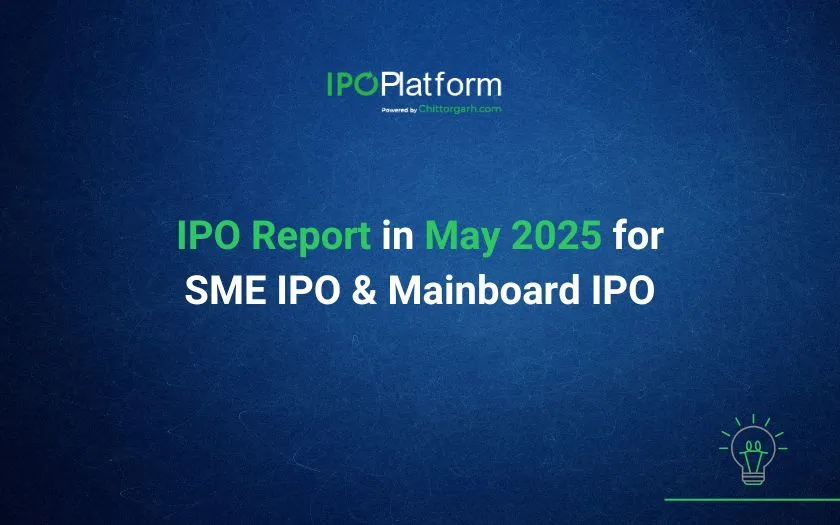
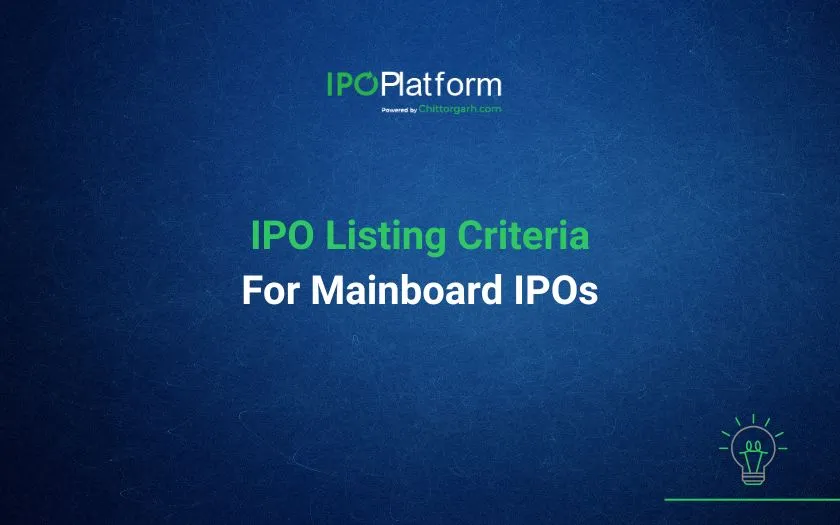
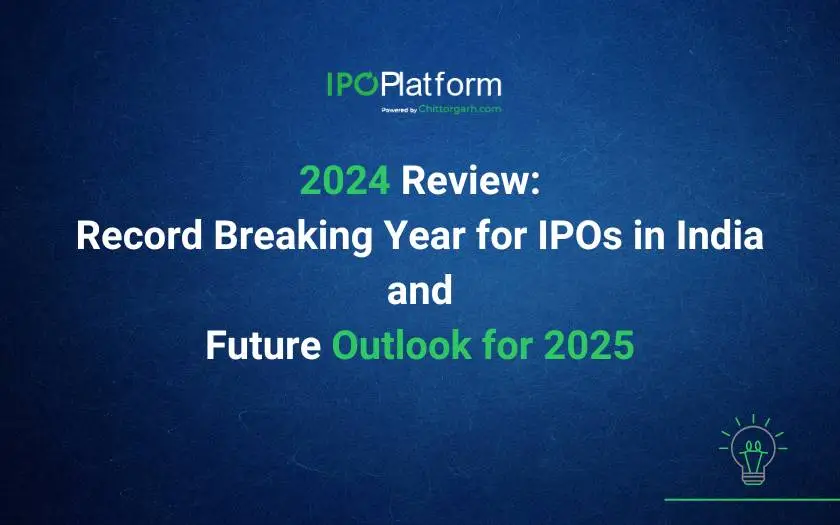
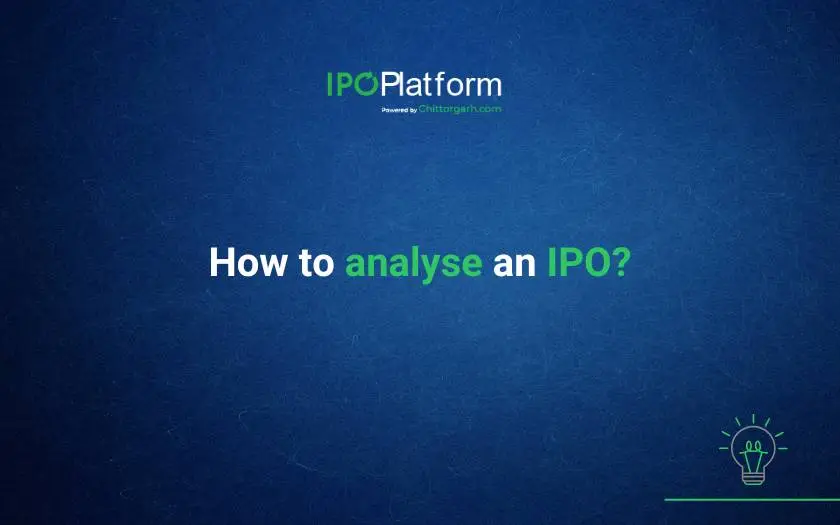
0 Comments